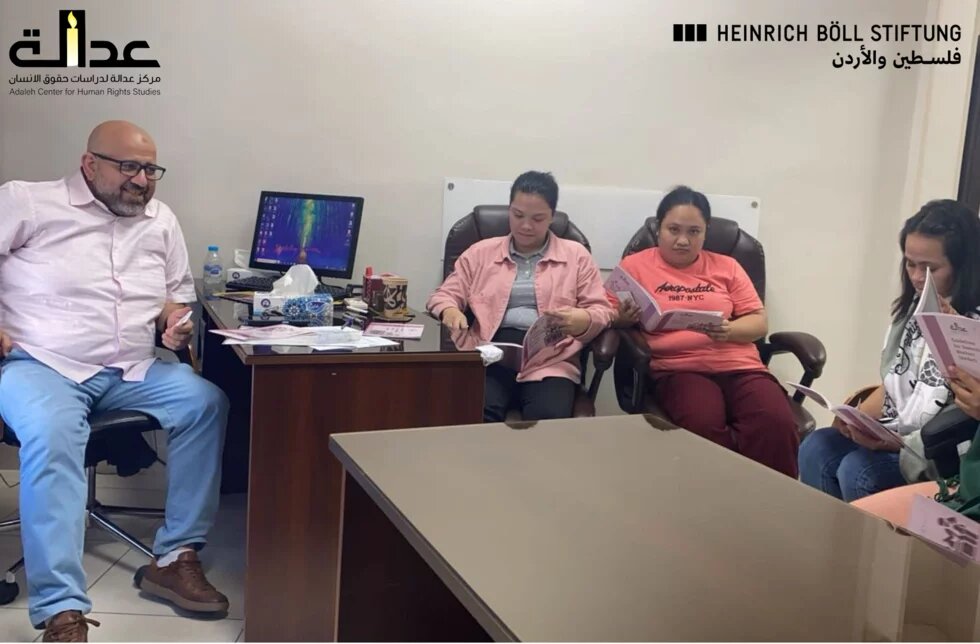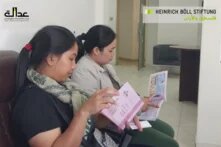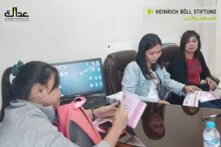
The Adaleh Center for Human Rights Studies, in collaboration with the Heinrich Böll Foundation - Palestine and Jordan, successfully concluded a specialized training program for domestic workers. The program aimed to empower these workers by enhancing their understanding of their rights and duties under Jordanian legislation. Spanning from May to September 2024, the program served 31 Filipino domestic workers upon their arrival to the Kingdom.
The program was designed to equip domestic workers with the necessary knowledge to adapt to life in Jordan, focusing on social and cultural aspects alongside providing essential information about their legal rights in the workplace. This initiative was conducted in cooperation with domestic worker recruitment agencies.
Key Training Topics:
- Social Aspects in Jordan: The training introduced workers to local customs and traditions, such as religion, language, cuisine, and celebrations, to facilitate their integration into Jordanian society.
- Sponsorship System: The program explained the sponsorship system in Jordan, its implications for workers, and their rights within this legal framework, helping workers understand their relationship with employers.
- Family and Special Occasions: The training highlighted family culture in Jordan and the significance of national holidays and events, aiding workers in their social integration.
- Rights of Domestic Workers: A comprehensive explanation of workers' rights regarding wages, holidays, and working hours was provided, along with guidance on how to obtain these rights in accordance with Jordanian laws.
- Official Documents: The training emphasized the importance of maintaining essential documents such as work contracts, work permits, and personal identification to ensure the protection of workers' rights.
- Workers’ Obligations: Clarification of workers' obligations according to employment contracts and applicable regulations in Jordan was provided, helping them adhere to the laws.
- Support Services: Information on accessing available support services was shared, along with contact details for assistance organizations.
- Embassy Communication: Guidance was given on how to contact their embassies if consular support is needed.
- Legal Aspects: The program highlighted workers' rights concerning wages, the statute of limitations on claims, and the importance of taking timely legal action.
At the end of the training, a written and audio guide was distributed to all participants to document the information covered. The guide aims to be an ongoing reference for domestic workers, allowing them to revisit it at any time to enhance their knowledge of their rights and duties in Jordan, and to understand how to reach support organizations for domestic workers in Jordan.
This program marks a significant step towards improving working conditions for domestic workers in Jordan and serves as a model for raising rights awareness and providing a safe and respectful environment for foreign labor. The Adaleh Center continues its work in collaboration with various partners to ensure the rights of workers in Jordan and achieve social justice.
The news was reported by the Adaleh Center for Human Rights Studies.












